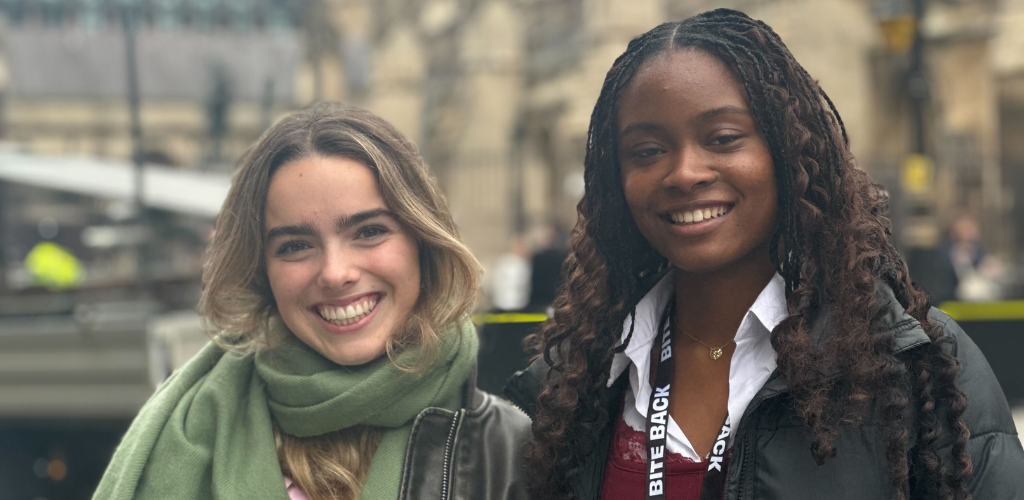We take the spotlight in the House of Commons
16 Oct 2025
Bite Back activists Alice and Jayda tell the Government to protect children's health and go further on the junk food ad ban at a high-profile House of Commons enquiry.

Our activists Alice and Jayda took the spotlight in the House of Commons last week. They were the first witnesses invited to speak as part of the Health and Social Care Committee’s new inquiry. Watch them in action!
Speaking in front of the Parliamentary Committee, they brought powerful personal stories — backed by hard-hitting facts — about growing up in a broken food system.
The delayed junk food advertising restrictions online, and on TV before 9pm are finally coming into place in January — but it’s not enough. Junk food brands can still promote their logos and identities, even if individual unhealthy products are restricted. And the restrictions do not stretch to outdoor advertising, such as billboards and bus stops. Our recent research together with the University of Liverpool, found that the majority (57%) of food and drink advertising outdoors promoted products high in fat, salt or sugar (HFSS). [1]
Young people are completely surrounded. But they’re speaking up. Just like Jayda did. “My ask to the Government would be ending junk food advertising in outdoor spaces, especially because we know more disadvantaged areas are exposed to more of it,” she told the Parliamentary Committee.
Why does this matter? As Alice explained: “My 12 year old sister shouldn't have to read the small print and subvert the tactics of multi-million pound companies.”
We need more action from the Government to create a healthier future. This year, our young people have taken activism to new heights. From attending corporate AGMs of some of the biggest food companies, to launching billboard campaigns, our efforts to hold companies accountable have been met with silence or pushback. But we’re not giving up!
Comment on our LinkedIn post so the committee members in the inquiry can see you are backing Bite Back.
Don’t have LinkedIn? Share our activists speaking truth to power, and help make our message too loud to ignore.
[1] Read more in our full report: Advertising. Are food giants bombarding young people on our streets?